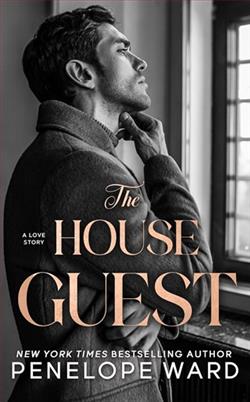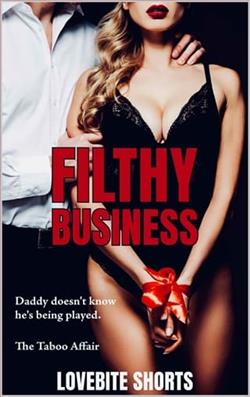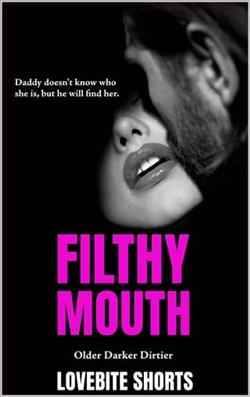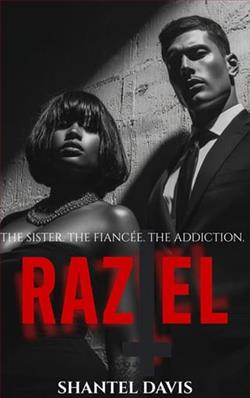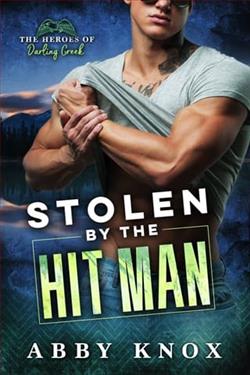Page 10 of Garden of Lies
Her fragile sense of gratitude evaporated in a heartbeat.
“I assure you I can take care of myself,” she said coldly. “I have been doing just that for some time now. I regret that I tried to explain my plan to you. That was clearly a mistake. I can only hope that you will honor my confidence. If you fail to do so, you may, indeed, put me in some jeopardy.”
He looked as if she had just slapped his face very hard. Equal measures of astonishment and outrage flashed in his eyes.
“Do you really think that I would deliberately do anything that would place you in danger?” he asked softly.
She was instantly consumed with remorse.
“No, of course not,” she said. “I would never have spoken to you of my intentions if I believed that to be the case. But I admit I had hoped you might be able to provide some helpful advice.”
“My advice is to give up this wild scheme.”
“Right.” She closed her hand around the doorknob. “Thank you for your ever so helpful counsel. Good day, Mr. Roxton.”
“Damn it, Ursula, don’t you dare walk out on me.”
It was, she realized, the first time he had ever used her given name. It was depressing to know that it was anger, not affection that had caused him to slip into the small intimacy.
She yanked the door open before he could stop her. She whisked up her skirts and went out into the hall, certain that he would not humiliate himself in front of the servants by chasing after her.
She was proved correct. Slater stopped in the doorway and watched her but he did not pursue her—not physically, at least. Nevertheless, when she arrived in the front hall she was oddly breathless.
Webster, the butler, opened the door for her.
“Leaving early, Mrs. Kern?” he asked. “I believe Mrs. Webster was making up a tea tray for you and Mr. Roxton.”
He sounded quite heartbroken.
In the course of the two cataloging sessions it had become obvious that the Roxton household was unusual in many respects, including the staff. They had all been hired by Slater’s mother. As far as Ursula could determine, Lilly Lafontaine recruited heavily from the unemployed, currently between engagements, or retired ranks of the theatrical world.
Webster was a lean, wiry man with a skeletal face. With his shaved head, a black eye patch covering one blue eye, and a jagged scar that marked his left cheek, he looked more like a pirate than a professional butler.
Ursula had discovered that the accident that had forced him into retirement had occurred onstage. She did not know all of the details but evidently he had been the victim of a fake sword that had failed to collapse properly.
She was also well aware that with his forbidding appearance, the number of employers who would have hired him—let alone elevate him to the status of butler—was vanishingly small. She had recognized him on their first meeting as a kindred spirit—an individual who had succeeded in reinventing himself. The knowledge had not only made her like him immediately, it had predisposed her to look favorably upon his employer.
Rapid footsteps sounded in the hall. Mrs. Webster appeared, a heavily laden tea tray in her hands.
“Mrs. Kern, are you leaving so soon? You mustn’t go. You haven’t had tea. Cataloging Mr. Roxton’s relics is such dry and dusty work.”
In her own way, Mrs. Webster was as unexpected as her spouse. She was very likely in her mid-forties but she had been gifted with the elegant bones and the fine figure of a woman who would be striking long into old age. It had come as no surprise to discover that she, too, had once earned her living as an actress. She entered a room carrying a tea tray with more of a flourish than most upper-class ladies could summon to make an entrance into a ballroom.
Like her husband, Mrs. Webster was always onstage. At the moment she was doing an excellent imitation of a Juliet who has just discovered that Romeo is dead.
“I hope to return at a more convenient time, Mrs. Webster,” Ursula said, aware that Slater was listening to the conversation. “It’s just that something has come up of a personal nature.”
“Are you ill?” Mrs. Webster demanded, hand clutching at her throat. “I know a very good doctor. He saved Mr. Webster’s life.”
“I assure you I’m in excellent health,” Ursula said. “I hate to rush off but I’m afraid I really must go.”
Webster reluctantly opened the door.
“Until Wednesday, then,” Mrs. Webster said, hopeful to the end.
Ursula pulled the black netting of her widow’s veil down over her face and escaped out onto the front step before Mrs. Webster could addParting is such sweet sorrow. She decided not to tell the Websters that she would not be returning on Wednesday or, possibly, ever again, judging by the expression on Slater’s face.
The carriage that Slater had insisted on arranging for the twice-weekly sessions was waiting in the street.









